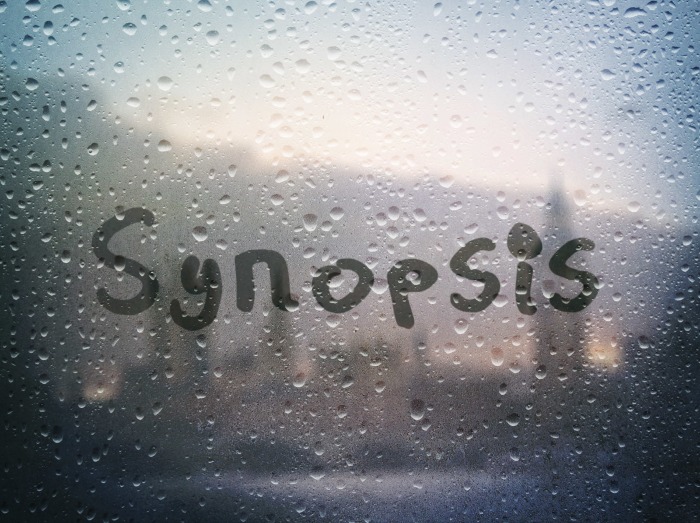Okay, fellow proposal peeps, it’s time to jump in and work together on crafting a perfect proposal. Many of you echoed what I’ve heard over and over through the years: “I hate writing the synopsis!”
This is especially painful because you need a short synopsis/summary that runs around 50-60 words—but still gives the gist of your story, mind you–and then a more detailed synopsis that can run a few pages long.
First, let’s tackle the really hard one: the Short Synopsis/Summary.
So, how do you encapsulate your wonderful book into so few words? Even more important, how do you make those words compelling? One way to do that is to consider movie trailers. Trailers are specifically designed to capture the core audience for movies. Even more than that, they’re crafted with the intent of leaving you, the audience, wondering how soon you can buy a ticket! How do they do that? Well, I watched a host of trailers as I prepared to write this blog (thanks for all that fun, folks!), and I have to say, those who produce movie trailers obviously know their core audience well. They know what matters to them, what will trigger a response, and what will get them to pull out the bucks for a ticket. And they all, regardless of genre, seem to use the following three elements. They give their audience:
- Just enough of the character to form a connection
- Just enough of the story to intrigue
- Just enough of what’s at stake to make us feel we have to know what happens
The challenge for us is that we don’t have the visuals or sound tracks or actors to go along with our synopses. But we can (and should!) know our audience well. And we can use the three elements above to make our synopses powerful.
So, as an example, my book Shattered Justice is a suspense novel about a sheriff’s deputy who loses everything that matters to him, who now struggles to believe in God’s justice in the face of that loss. His struggle is resolved when the small mountain community where he lives now is overrun by some really bad people, and the townsfolk turn to Dan for help. Obviously, there’s a lot more to the story, but that’s the main gist. And I could just use what I wrote as a short synopsis, but it lacks…
Well, everything. It lacks punch and emotion. It won’t make anyone care all that much about the book. So now let’s apply the three elements:
Just enough of the character:
Sheriff’s deputy Dan Justice has spent his life seeking justice for others…
He’s in law enforcement. That means he helps those who are victims, those who’ve been hurt by others. The fact that he seeks justice for others implies he’s strong and honorable. A warrior. Right away we know he’s someone we can root for.
Just enough of the story:
but when everything he loves is ripped away
Notice the emotive words: everything that matters most. We’re wondering what those things are. His family? His faith? And he didn’t lose just a few of them, but all. Everything. What’s more, those things aren’t just taken away, they’re ripped away. And note that this is in present tense, not past tense. This is a recent trauma.
anger and despair take over.
Most of us can relate to that. Those are powerful, universal emotions. As is the idea of being taken over by dark emotions when your world is devastated.
Where is God’s justice for him?
A simple, powerful question. You can almost feel his rage, his demand that God give an accounting.
Just enough of what’s at stake:
Then a small town under assault turns to him for help.
So here are the first stakes. A small town in danger. Under assault. People who’ve probably known each other all their lives, now at risk. Needing to be saved. All the things he’s focused on as a lawman. Things we believe he can’t turn his back on.
Dan must do what he can, even if it costs him the only thing he has left to give…
Yay, for the hero! We knew he couldn’t resist answering the call!
His life.
And the greatest stakes of all. Life or death. Notice I didn’t use the old “non-question question” at the end. Something like: Can Dan overcome his anger to help those in need once more? The reason we call that a non-question question is because the answer, obviously, will be yes. Let’s steer clear of those kinds of things. Instead, give us the real question, the real stakes, that will leave us hanging. And remember, this is a suspense novel. It’s possible dear ol’ Dan could give his life for these folks.
So here you have it, coming in at 63 words, my short synopsis for Shattered Justice,:
Sheriff’s deputy Dan Justice has spent his life seeking justice for others, but when everything he loves is ripped away, anger and despair take over.
Where is God’s justice for him?
Then a small town under assault turns to him for help. Dan must do what he can, even if it costs him the only thing he has left to give…
His life.
Now, the beauty of doing the short synopsis/summary first, is that you can then build on it for your longer story synopsis. Fill in the details, but be strategic. Only include the information what will add impact and emotion for the reader—namely the editor/agent reading your proposal. Include key characters, information that’s necessary, not extraneous, pivotal scenes. For Shattered Justice, I’d explain some of what Dan lost, and how he lost it. I’d include the fact that he has two sisters who are struggling to help him. Praying for him. I’d describe the people of the town who will come to mean something to Dan. And I’d include about the villain, then end with the resolution. And yes, you want to give away the ending in your proposal. This isn’t marketing copy, friends. This is what will let the editor/agent know that you’ve got the story figured out.
So, your turn. Give us a short synopsis, but keep it to 65 words or less.
Okay? Have at it!











